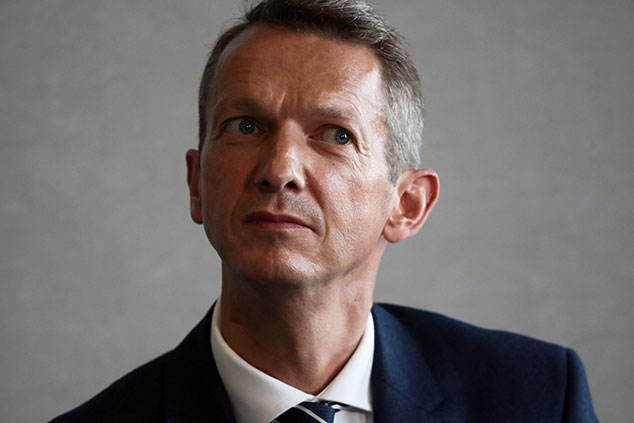
This article is taken from our FREE daily investment email Money Morning.
Every day, MoneyWeek’s executive editor John Stepek and guest contributors explain how current economic and political developments are affecting the markets and your wealth, and give you pointers on how you can profit.
.
In this week’s issue of MoneyWeek magazine
●
Shield your portfolio from the monetary singularity
●
Why China is set to hit the Great Wall of Debt
●
Investment trusts: the Saints go marching on
●
The dull reality of house prices
●
Cryptocollectables: art on the blockchain
● Share tips of the week
Not a subscriber? Sign up here
The Bank of England met up to talk about interest rates yesterday.
Everyone yawned.
BoE boss Mark Carney appears to be so opposed to the idea of raising rates while Brexit is still in the pipeline, that no one expects much from the Bank’s chats anymore.
Hence, when the committee sprang a surprise, sterling rocketed.
The odds of an August interest rate rise just jumped
Let’s be clear here – nothing especially exciting happened at the Monetary Policy Committee (MPC) meeting yesterday.
The nine-member MPC voted on whether to raise interest rates or not, from their current level of 0.5%. The market expected the vote to be 7-2 against. Ian McCafferty and Michael Saunders have been calling for rate hikes for a while now, and the market has just put them down as being incorrigible “hawks” (ie, they want tighter monetary policy, as opposed to “doves” who want weaker monetary policy).
Instead – shock, horror – the vote was 6-3 against. So rates weren’t raised, but there was one fewer dove than normal.
Again, it shows how tightly monitored central bank-speak has become that a small shift in voting can cause a pretty significant spike in the pound. And again, it’s a reminder of how fundamentally strange it is that one man’s choice to raise his hand to say “aye” rather than “nay” can have such a clear impact on such a huge market.
We try to avoid centrally planning the price of anything else. But we think it’s a good idea when it comes to the price of money. Something to ponder when you’re lying awake in the wee small hours of the morning (or maybe that’s just me).
Anyway, to be fair to the market, it wasn’t just any old MPC member who jumped over to the hawkish side. It was none other than Andy Haldane, the Bank of England’s chief economist.
Haldane is definitely one of the more interesting thinkers in the land of central banking. He’s mostly appeared in the pages of MoneyWeek previously because he’s spent a fair bit of time looking at the notion of digital money and the death of cash. But he’s also one of the more public members of the MPC and clearly an influential voice at the Bank.
And now, despite his widespread reputation as a “dove”, it appears that he thinks that enough is enough. If the Bank is going to raise rates at all, then why not now? As the minutes of the meeting put it, “the benefits of waiting for additional information [are] limited.”
The pound surged higher against the US dollar, because markets now believe that a rate rise might arrive in the UK rather sooner than they’d expected. Indeed, judging by the market reaction, investors now think there’s a 68% chance of a rate hike in August, compared to 48% before the news of Haldane’s dissent emerged.
The era of money printing is coming to an end
What does it all mean?
Well, if you’re a saver, I wouldn’t get overly excited. Rates might go up at the August meeting now, but we’re still talking 0.75% instead of 0.5%. Indeed, while Britain might not exactly be shooting the lights out economically-speaking right now, rates are still extraordinarily low.
There’s an interesting blog on this very topic on the Bank of England’s (excellent) “Bank Underground” website. This is where the Bank’s staff have the freedom to pontificate on all sorts of topics, and it’s worth keeping an eye on – the content is well-written and mostly not too technical, given the topics.
In April, researcher John Lewis took a look at “real” interest rates (that is, interest rates adjusted for inflation). He figured out that if real rates were to revert to their average levels for the 20th century, then Bank rate would not be 0.5% – it would be around 3.25%.
Meanwhile, ten-year gilts would be a bit higher than that, at 3.5% (they’re currently below 1.5%). And mortgage rates – they’d be around 4.5%, which I suspect is considerably more than most of you are paying right now (and if it’s not, find yourself a better deal right now).
Now as I said, don’t get too excited / panicked. Rates are a long way off 3%. And like its fellow central banks, the Bank of England will take any excuse to go easy on rate hikes.
Yet, this is just yet one more illustration of a very obvious point – we are at an extremely unusual point in time, financially speaking. And the pressure is on for things to “normalise”, one way or the other.
The era of “quantitative easing” (QE) is ending. We’re entering the world of “quantitative tightening” (QT). The central banks have been pumping money into the global financial system. That’s now going into reverse. And that has to have consequences.
Regular MoneyWeek contributor Jonathan Compton writes about how to shield your portfolio from those potential consequences in the latest issue of MoneyWeek, out today. If you’re not a subscriber, sign up now – in terms of events that will affect your wealth, this is probably by far the biggest for the foreseeable future, so it’s worth understanding what’s going on.